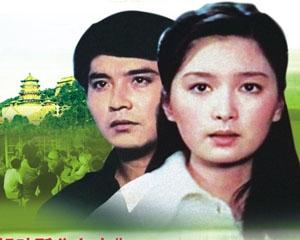Film Review: A Symphony of Cooking Utensils
Lucky in business, unlucky in love is Niu Hong's fate in this old-school Chinese film, in which a corporate department manager in a government-run food and beverage company is promoted to manager of its Chun Cheng Restaurant. Having already gone through a string of unsuccessful managers, the flagging establishment is rife with discord among its staff and patrons, and is on the brink of failure when handsome young Niu Hong takes the helm.
In an effort to impress upon the staff that his style of management will breathe new life into the place, Niu Hong treats them to a truckload of watermelons at the first employee meeting. But a donnybrook ensues when he orders Sun, the restaurant's bookkeeper, to award merit-based cash bonuses, an unheard-of practice in the communist system. Over time however, Niu manages to get everyone onboard as he begins remodeling the Chun Cheng with private capital. And when the restaurant begins turning a profit, he reinvests it in expanding the business, and the lucrative proceeds trickle down to the staff, which includes Liu Junying, a comely young art student who works as his assistant.
However, when news of the Chun Cheng's enterprising success reaches the powers-that-be, Niu is fired for withholding a portion of the restaurant's revenues instead of turning them over to the state. And although Niu's romantic intentions toward Liu Junying are dashed when she marries a well-known writer, it is her husband's newspaper expose that gets Niu reinstated as manager of the Chun Cheng.
Originally produced in 1983, A Symphony of Cooking Utensils bears a DVD release date of 2008, but the film is conspicuously dated. And although the subtitles are awkwardly and inaccurately translated in places, and the dialogue is somewhat naïve, the story is compelling in its prophetic portrayal of the communist ideology as a political system whose time has passed.
 ThingsAsian
ThingsAsian
















